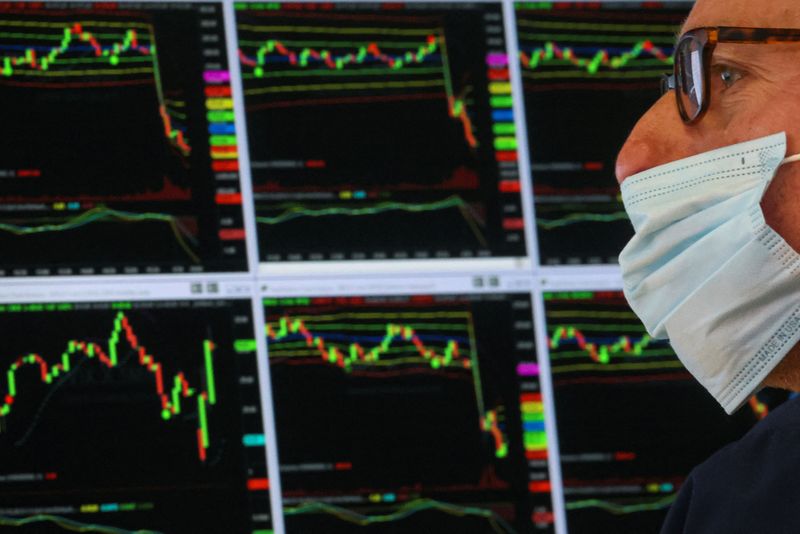Marketmind: End of H1 but expect no relief
2022.07.01 10:36

FILE PHOTO: A specialist trader works on the floor of the New York Stock Exchange (NYSE) in New York City, U.S., June 30, 2022. REUTERS/Brendan McDermid
A look at the day ahead in markets from Sujata Rao.
The good news is the 2022 first-half is behind us — just looking at U.S. markets, the world’s biggest, the S&P 500 posted its worst percentage decline since 1970, losing $8.5 trillion in value, while 10-year Treasury yields rose 150 basis points.
The bad news? The second 2022 half may see more of the same.
For one, dire data readings continue to pour in.
Following Thursday’s U.S. figures on slowing consumer spending and still-rising inflation, China at least delivered some positive news, reporting on Friday that the easing of lockdowns had allowed factory activity to expand at the fastest pace in 13 months.
But Japanese and Korean manufacturing slowed, while Taiwan contracted.
Nor did monthly Korean trade numbers, a bellwether of sorts for global commerce, offer any cheer, revealing exports grew in June at the slowest in over 1-1/2 years while imports jumped almost a fifth, driven by energy prices.
Now for euro zone-wide inflation. This week brought a welcome slowing in German price growth (albeit caused by one-off factors) but an alarming 10%-plus reading in Spain.
There in a nutshell are some of the problems the European Central Bank faces – the needs of 19 different economies.
Bloc-wide, June price growth due on Friday is predicted at 8.4%, versus 8.1% in May.
Friday is also when the ECB starts using proceeds from maturing German, French and Dutch debt to buy bonds from Italy and other southern states to halt north-south fragmentation.
So far so good — Italian ten-year borrowing costs have fallen 100 bps since mid-June, brought down by hopes such a plan would be deployed. Its yield premium over Germany stands just above 200 bps, well off a perceived 250 bps danger line.
U.S. and German yields are lower, with U.S. 10-year borrowing costs below 3% and in line for their second week of declines. And markets reckon rate hike cycles may pause earlier than anticipated, seeing the Fed funds rate peaking around 3.4% next April, and declining thereafter to end 2023 below 3%.
Key developments that should provide more direction to markets on Friday:
– June PMIs, globally (final)
– UK June mortgage lending
– Euro zone June flash CPI/HICP
– US June ISM
– Colombia raises interest rates by 150 basis points to 7.50%,







